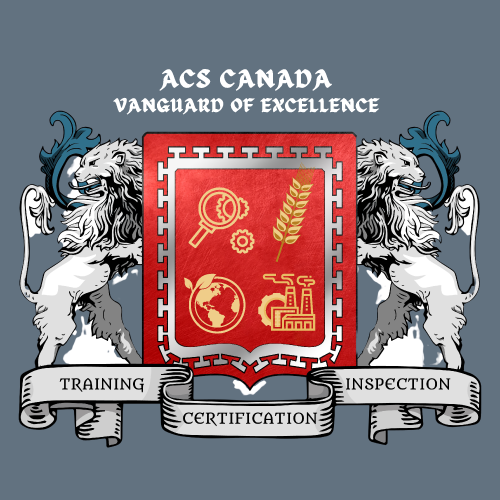ISO 22301-BCMS Certification

BUSINESS CONTINUITY
WHAT IS BUSINESS CONTINUITY MANAGEMENT SYSTEM (BCMS)
ISO 22301 specifies the format and provisions for implementing and maintaining a business continuity management system (BCMS) that reaches business continuity appropriate to the amount and type of impact that the business organization may or may not accept in the aftermath of a disruption. The consequences of maintaining a BCMS are defined by the organization's legal, regulatory, organizational, and industrial needs, goods and services given, procedures used, the organization's size and structure, and the requirements of its interested parties.
A BCMS emphasizes the importance of:
1-Understanding the organization's needs and the necessity of establishing business continuity policies and objectives,
2-Operating and maintaining processes, capabilities, and response structures to ensure the organization will survive disruptions,
3-Monitoring and reviewing the performance and effectiveness of the BCMS,
4-Continual improvement based on qualitative and quantitative measures.
Benefits of a business continuity management system:
The purpose of a BCMS is to prepare for, provide and maintain controls and capabilities for managing an organization's overall ability to continue to operate during disruptions. In achieving this, the organization is:
From a business perspective:
-Supporting its strategic objectives; -Creating a competitive advantage; -Protecting and enhancing its reputation and credibility, -Contributing to organizational resilience;From a financial perspective:
-Reducing legal and financial exposure; -Reducing direct and indirect costs of disruptions.
From the perspective of interested parties:
-Protecting life, property and the environment; -Considering the expectations of interested parties; -Providing confidence in the organization's ability to succeed.
From an internal processes perspective:
-Improving its capability to remain effective during disruptions; -Demonstrating proactive control of risks effectively and efficiently; -Addressing operational vulnerabilities.
ACS Canada has designed BCMS training and consultancy courses for manufacturing and service organizations. Organizations can be audited and certified according to Business Continuity Management Systems requirements (BCMS)ISO 22301 and obtain ACS Canada's BCMS award certificate.
Training at ACS Canada
ACS employs accelerated learning methods to ensure a comprehensive grasp of all certificates. Our approach involves contextualizing your learning through a wide array of options, including classroom instruction, workshops, as well as interactive and online sessions.
ISO 22301-BCMS Certification Training - 1

Business Decision Analysis Course
The aim of this course is to define and teach the steps of the decision-making process, define the different roles played by qualitative and quantitative approaches to managerial decision making. Course Content: Decision-making process, Perform cost-revenue-profit analysis, and calculate break-even values, mathematical models for calculating break-even, maximization of profit, and minimization of costs with given […]
More About This CourseISO 22301-BCMS Certification Training - 2

Business Statistics and Data Analysis
Every year humans are producing more and more data. The central challenge businesses and individuals face making sense of all this data we are now confronted with. This class will help introduces you to essential tools for making sense of data. Course Content: Introduction to Statistics, Descriptive Statistics (Part 1 – Tables and Graphs), Descriptive […]
More About This CourseISO 22301-BCMS Certification Training - 3

Quantitative Methods for Business Management
This course teaches best practice quantitative methods used in conventional and sustainable business settings
More About This CourseISO 22301-BCMS Certification Training - 4
QUALITY FUNCTION DEPLOYMENT

QFD Training Course
This course aims to teach the principles and practices of Quality Function Deployment, QFD.
More About This CourseISO 22301-BCMS Certification Training - 5
STRATEGIC THINKING

STRATEGIC THINKING
Now a day , Strategic thinking is a very important practical concept, in this course we will get to know the concepts and stages of strategic thinking. Strategic Thinking is a mental synthesis process creating an integrated view of the business in mind, through creativity and intuition “Mintzberg”. Course Content: Strategic thinking definitions: Mintzberg, Porter, […]
More About This CourseISO 22301-BCMS Certification Training - 6
Design of Experiment

Design of Experiment (DOE)
Design of Experiment (DOE) is a powerful statistical technique for improving product or process designs and solving process or production problems. DOE defines control changes to input variables in order to find cause and effect relationships with a minimum sample size. When analyzing a process, experiments are often used to evaluate which process inputs have […]
More About This CourseISO 22301-BCMS Certification Training - 7
BUSINESS CONTINUITY

ISO 22301 – Requirements
This course aims to provide delegates with the knowledge and skills required to understand requirements and documentation against the requirements of BCMS-ISO 22301.
More About This CourseISO 22301-BCMS Certification Training - 8
QMS REQUIREMENTS

ISO 9001 – Requirements
The aim of this course is to provide delegates with the knowledge required to understand QMS requirements and documentation .
More About This Course
